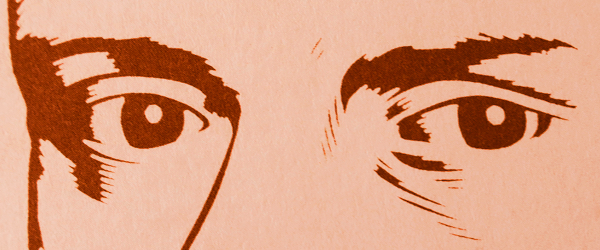 “I’m beginning to see that our appetite for books is the same as our appetite for food, that our brain tells us when we need the literary equivalent of salads, chocolate, or meat and potatoes.” – Nick Hornby
“I’m beginning to see that our appetite for books is the same as our appetite for food, that our brain tells us when we need the literary equivalent of salads, chocolate, or meat and potatoes.” – Nick Hornby
“The Polysyllabic Spree” by Nick Hornby is a book about reading that I’m sure you’ll enjoy reading if you love to read. Literally.
With his distinctive witty narrative and open conversational style, the bestselling author of “A Long Way Down” and “Fever Pitch” brilliantly unveils the imperfect and humanizing side of reading we all can relate to.
Let’s face it, reading is quite a challenging task, frequently threatened by all kinds of possible distractions.
And that is the pillar battle in Nick Hornby’s book, as each chapter represents one month of a year-long reading journey, where at the beginning of each episode he enlists those books he bought vs those books he read.
The challenge is quite entertaining as many of the books he reads are not even those he originally purchased. And in the mix of his hilarious explanations, his book commentaries and recommendations are spot on.
As he takes us on this natural and spontaneous reading expedition, he invites us to explore our own reading habits, our unique relationships with books, and even the detours and struggles we face when trying to read.
When it comes to those ever-present obstacles, the author accurately points out that reading is a domestic activity, and is therefore susceptible to any changes in the domestic environment.
Not that this is my case, but let’s say you are comfortably sitting with a book one evening, and your very imaginative and hyper-active four-year-old boy is running around the house while holding a toy spaceship and making sound-blasting special effects.
In such case, you must surrender to the planetary troops that are aggressively pushing you towards an asteroid field, and attempt reading at a later time, perhaps right after the spaceship captain takes an intergalactic bath followed by him going to his zero-gravity sleeping capsule to rest for the night.
Because reading is a very personal activity, we also have our own rules.
For example, I read in both English and Spanish, so I have this rule: I like to read the book of the author in their native tongue primarily.
However, if the author’s language is neither English nor Spanish, then I will proceed to read it in the closest language. Let’s say, if the author is German or Swedish, I would read it in English; if the author is Portuguese or Italian, I would read it in Spanish.
But then I can’t explain why I chose to read Japanese author Haruki Murakami in Spanish, or Greek philosophers in English. Of course, it also depends on availability.
Back to the book, Nick Hornby has a few confessions he shares that I felt very identified with, but also a little bit guilty of such conducts.
For instance, he spends a lot of money on books, many of which he knows he will never read. Anybody else guilty of this?
But let’s say you did start reading a book, and at one point you realize it’s not your type or you simply can’t finish it. Well, it is OK to abandon it. There is no reason to persist with a book that is not working for you.
And while some books are badly written, Hornby reminds us that sometimes they are badly read as well. Not enjoying a book could be our fault too if we don’t provide the commitment and concentration that a book requires.
Now, when it comes to how we organize our reading list, there are (almost inevitably) events that alter the order of your pile of books-to-read.
One of those common events for me comes from book recommendations from a close friend or relative who has a proven track record of recommending great books.
When that happens to me, I feel I must stop whatever I’m reading or update my book cue accordingly in order to give VIP preference to that book recommendation.
Other altering events are realizing an author I like has released a new book or discovering a totally interesting book by accident (like it happened to me with this one).
But altering your book order and putting books aside for later can also be a pain in the Rumpelstiltskin. Especially when you realize there are several books you have put aside which have remained unread for years.
And I’m talking about real physical books in your home! I’m not even going to mention those books I have on my Amazon shopping cart “saved for later”.
One thing is very true: there will never be enough time to read all the books you want.
In fact, Nick Hornby reveals a depressing fact from Gabriel Zaid’s book “So Many Books”, which estimates that it would takes us 15 years simply to read a list of all the books ever published (author and title to be precise)!
The lesson here is to stop wasting time reading books you hate and the more reason to prioritize and focus on enriching, enjoyable, and substantial books.
What books to read? If you are open to new ideas, Nick Hornby has some great recommendations throughout the book covering many genres and authors.
As soon as you immerse yourself in this book, you’ll realize he is not only a tremendous book critic, but his love of books is so contagious you might want to start your own reading list challenge.
At the end of the day, the ultimate goal we readers have is to secure a temporary peacefulness that will allow us to achieve the maximum enjoyment of reading. But can we?